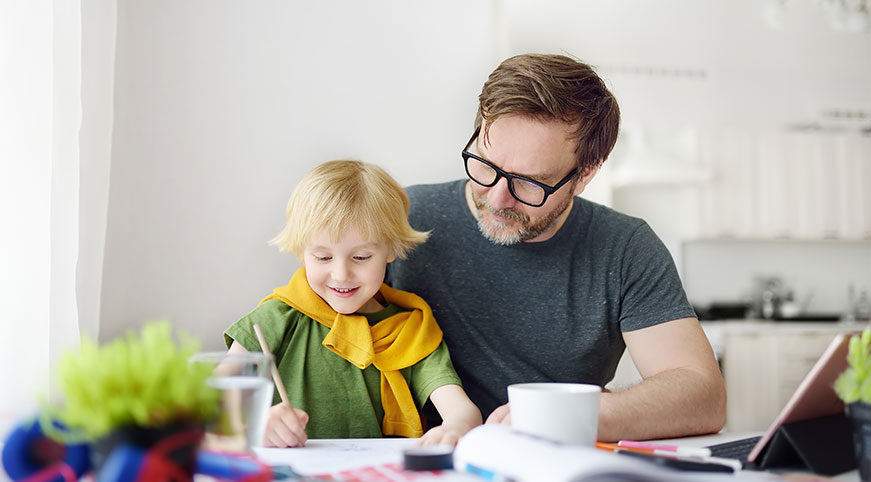The COVID-19 outbreak has caused major disruptions to daily life and can have a profound impact, particularly on children. Young people will inevitably face many changes during the pandemic. The uncertainty of the situation and changes in routine can cause many children—and parents—to feel stressed and anxious.
Many children will experience the ‘new normal’ during COVID-19 differently. The youngest children may primarily be reacting to the increased stress at home, while those a bit older may not fully understand why life has changed—no preschool/school, no play dates, and no outings. Yet they see normal activity on television. They do not really understand the current restrictions put in place due to COVID-19. Older children and adolescents understand the reasons for the restrictions, but may also feel that adults are overreacting.
Here are tips for parents to help their children cope with the ‘new normal’ and calm their anxiety:
- Remember the 3 E’s: Encourage, Educate, and Empathize. Encourage open discussions and concerns with your children. Educate them about the reality of the situation and why the restrictions are important. Empathize with them by validating their feelings and concerns about the situation. Logic may not be the best, first response. Empathetic response should not start with “at least”, as that may seem like you are not relating to the other person’s emotions and concerns.
- Introduce new activities in their daily routine to keep them engaged. Children may feel punished and some will experience the feeling of lost opportunities and events. They hear a world of NOs everywhere—No you cannot go there, No we do not have any of that and are not risking a trip to get it, No we are not taking you to or letting you go there, No those are not open now. Build new activities in their routine like movie nights at home, picnic in your backyard or uncrowded park, or even a day trip to a remote (uncrowded) location. Most of all, remember that in humor there is hope. Look for it in creative ways. Art, cartoons, and songs can be fun ways to put our funny bones to work.
- Help children stay ‘virtually’ connected with their friends. Communicating with their friends and peers can help children feel better. Help them connect with their friends through video calls using Skype or FaceTime.
- Manage your own anxiety and share it with a loved one or expert. Empathize, share, and give. Share your issues as well. When things become overwhelming or you see troublesome behavior, seek professional assistance. This pandemic is much more than we were prepared for. Good therapeutic support can minimize the long term emotional burden of the difficult situation we all are facing.
While these uncertain times are challenging for all, we can take steps to help ourselves and our family feel safer, happier, and more connected with others to cope with the ‘new normal’. We are all in this together and we will successfully get through these uncertain times together.
Go to our Blog
 ENGLISH
ENGLISH KOREAN
KOREAN Spanish
Spanish RUSSIAN
RUSSIAN Armenian
Armenian FILIPINO
FILIPINO Chinese (Simplified)
Chinese (Simplified) Chinese (Traditional)
Chinese (Traditional)


최신댓글